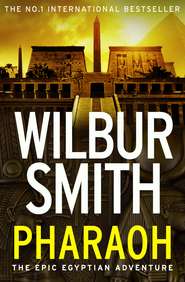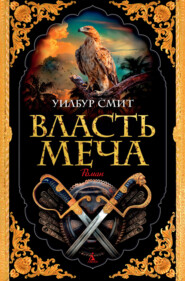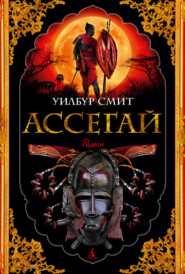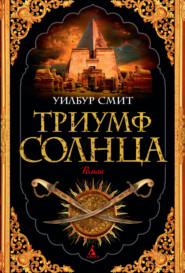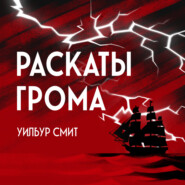По всем вопросам обращайтесь на: info@litportal.ru
(©) 2003-2024.
✖
Predator
Автор
Год написания книги
2019
Настройки чтения
Размер шрифта
Высота строк
Поля
‘Well, tell him anyhow. Let him know what I’d like. Now, I can give you a power of attorney over a bank account, right, to pay for legal expenses and suchlike?’
‘Yes, that’s possible.’
‘OK, so I have an account at a private bank, Wertmuller-Maier in Geneva. I’m gonna give you the account number and all the codes you’ll need. First thing I want you to do is get someone to empty my safe-deposit box there and send it back to you, express delivery. I want the box unlocked and then sealed, with wax or some shit like that, so it can’t be tampered with. Then withdraw three million dollars from my account. Two mill’s for you, like a down payment on account. The other mill’s for D’Shonn. Give him the deposit box too; he can open it. Tell him it’s personal memorabilia, shit that means a lot to me, and I want it buried with me in my coffin. I’m talking about my coffin, ’cause I want D’Shonn to organize my funeral service and the wake afterwards, make it a real event folks ain’t ever gonna forget. Ask him from me to get all the folks from back in the day, when we was all boys in the hood, to come along and see me off, pay their respects. Tell him I’d really appreciate it. Can you do that?’
‘A million dollars, just for a funeral and a wake?’ Weiss asked.
‘Hell, yeah, I want a procession of hearses and limos, a service in, like, a cathedral or something, and a slap-up party, celebrate my time here on earth: caviar and prime ribs to eat, Cristal and Grey Goose at the bar, all that good shit. Listen, a million’s nothing. I read that geeky little mother started up Facebook spent ten mill on his wedding. Come to think of it, Shelby, make it two mill for D’Shonn. Tell him to lay it on real thick.’
‘If that’s what you want, sure, I can do that.’
‘Yeah, that’s what I want, and impress upon him that this is the wish of a dying man. That’s some serious shit, right?’
‘Yes it is.’
‘Well, you make sure he understands that.’
‘Absolutely.’
‘OK, so here’s what you’ll need to get into that account.’ Congo recited an account number, a name and then a long series of apparently random letters and numbers. Shelby Weiss wrote it down meticulously in his notebook, and then looked up.
‘OK, I have got all that down. Is there anything else you want to tell me?’ he asked.
‘Nothing else.’ Johnny shook his head. ‘Just come back when you have done everything I told you.’
Aleutian Brown had been a gangbanger. He ran with the Maalik Angels, who liked to present themselves as warriors of Allah, though most of them would have struggled to read a comic book, let alone the Koran. But Aleutian’s kid brother D’Shonn was a very different proposition. He’d had it just as tough as Aleutian growing up, he was just as angry at the world, and was just as mean an individual. The difference was, he hid it a whole lot better and was smart enough to learn from what happened to his brother and all the homies he’d hung out with. Most of them were in jail or in the ground.
So D’Shonn worked hard, stayed out of trouble and made it into Baylor on an academic scholarship. On graduating, he won another full scholarship to Stanford Law School, where he took a particular interest in criminal law. Having graduated with honours, and breezed through the California state bar exam, D’Shonn Brown was perfectly placed to choose a stellar career path, either as a defence attorney, or a hotshot young prosecutor in a DA’s office. But his purpose in studying the law had always been to better equip himself to break it. He saw himself as a twenty-first-century Godfather. So in public he presented himself as a rising star in the business community, with a strong interest in charitable activities: ‘I just want to give back,’ as he used to say to admiring reporters. And in private, he pursued his interests in drug-dealing, extortion, human-trafficking and prostitution.
D’Shonn understood at once that there was a clear subtext to Johnny Congo’s message. He was certain Shelby Weiss could see it too, but there was a game to be played so that both men could deny, on oath, that their conversation had been about anything other than a condemned man’s desire for a fancy funeral. But just the way Johnny had emphasized that he wanted D’Shonn to see him and to hug him before he died, the way he’d talked about all the vehicles he wanted to be in the procession – well, you didn’t need to be an A-grade student to see what that was all about.
Still, if Johnny Congo wanted the world to think D’Shonn’d been asked to organize a funeral and wake, well, that’s what he was going to do. Having accessed the full $2 million allocated to him from Johnny Congo’s Geneva account he decided that an event on the scale Johnny had in mind couldn’t be held in his home town of Nacogdoches. So he made enquiries at a number of Houston’s most prestigious cemeteries before securing a lakeside plot at a place called Sunset Oaks, where the grass was as immaculate as a fairway at Augusta and gently rippling waters sparkled in the sun. A fine marble headstone was ordered. Several of the city’s most prestigious and expensive florists, caterers and party venues, including a number of five-star hotels, were then presented with lavish specifications and invited to tender for contracts.
All these enquiries were accompanied by supporting emails and phone calls. When deals were agreed, printed contracts were hand-delivered by messengers so that there could be no doubt that they reached their destinations and were received. Deposits were paid and properly accounted for. More than 200 invitations were sent. Anyone who wanted to see evidence of a genuine intention to fulfil the stated wishes of Johnny Congo would be presented with more than they could handle.
But while all this was going on, D’Shonn was also having private, unrecorded conversations about very different matters connected to Jonnny Congo as he played rounds at the Golf Club of Houston, where he had a Junior Executive membership; lunched on flounder sashimi and jar-jar duck at Uchi; or dined on filet mignon Brazilian-style at Chama Gaúcha. Leaving no written record whatever, he handed over large amounts of cash to intermediaries who passed the thick wads of dead presidents on to the kind of men whose only interest in funerals lies in supplying the dead bodies. These individuals were then told to co-ordinate their activities via Rashad Trevain, a club-owner whose House of Rashad holding company was 30 per cent owned by the DSB Investment Trust, registered in the Cayman Islands.
D’Shonn Brown was known to take no active part in the running of Rashad’s business. When he was photographed at the opening of yet another new joint, he’d tell reporters, ‘I’ve been tight with Rashad since we were skinny-ass little kids in first grade. When he came to me with his concepts for a new approach to upscale entertainment it was my pleasure to invest. It’s always good to help a friend, right? Turned out my man is about as good at his job as I am at mine. He’s doing great, all his customers are guaranteed a good time, and I’m getting a great return on my money. Everyone’s happy.’
Except for anyone who crossed D’Shonn or Rashad, of course. They weren’t happy at all.
Engines to neutral. Anchors away!’ In the Atlantic Ocean, 100 miles off the northern coast of Angola, Captain Cy Stamford brought the FPSO Bannock A to rest in 4,000 feet of water. Of all the vessels in the Bannock Oil fleet, this one had the least imaginative or evocative name, and she didn’t look any better than she sounded. A mighty supertanker may not possess the elegance of an America’s Cup racing yacht, but there is something undeniably magnificent about its awesome size and presence, something majestic about its progress across the world’s mightiest oceans. Bannock A was certainly built to supertanker scale. Her hull was long and wide enough to accommodate three stadium-sized professional soccer pitches laid end-to-end. Her tanks could hold around 100 million gallons of oil, weighing in at over 300,000 imperial tons. But she was as graceless as a hippo in a tutu.
The day he took command, Stamford had Skyped his wife, back home in Norfolk, Virginia. ‘How long’ve I been doing this, Mary?’ he asked.
‘Longer than either of us care to think about, dear,’ she replied.
‘Exactly. And in all that time I don’t think I ever set to sea in an uglier tub than this one. Even her mother couldn’t love her.’
The veteran skipper, who had spent more than forty years in the US Navy and the Merchant Marine, was speaking no more than the truth. With her blunt, shorn-off bows and box-like hull Bannock A resembled nothing more than a cross between a gigantic barge and a grossly oversized container. To make matters worse, her decks were covered from end to end with a massive superstructure of steel pipes, tanks, columns, boilers, cranes and cracking units, with what looked like a chimney, well over 100 feet tall and surrounded by a web of supporting girders, painted red and white, rising from the stern.
Yet there was a reason that the board of Bannock Oil had sanctioned the expenditure of more than $1 billion to have this huge floating eyesore constructed at the Hyundai shipyards in Ulsan, South Korea, and then appointed their most experienced captain to command her on a maiden voyage of more than 12,000 miles. As FPSO Bannock A made her slow, cumbersome way through the Korean Straits and into the Yellow Sea, then on across the South China Sea; past Singapore and through the Malacca Straits to the Indian Ocean; all the way to the Cape of Good Hope and then round into the Atlantic and up the west coast of Africa, the moneymen in Houston had been counting down the days to payback time. For the initials FPSO stood for ‘floating production, storage and offloading’ and they described a kind of alchemy. Very soon Bannock A would start taking up the oil produced by the rig that stood about three miles north of where she now lay at anchor; the first to come into operation on the Magna Grande oilfield that Bannock Oil had discovered more than two years earlier. Up to 80,000 barrels a day would be piped to Bannock A’s onboard refinery, which would distil the thick, black crude into a variety of highly saleable substances from lubricating oil to gasoline. Then she would store the various products in her tanks ready for Bannock Oil tankers to take them on to the final destinations. The total anticipated production of the Magna Grande field was in excess of 200 million barrels. Unless the world suddenly lost its taste for petrochemicals, Bannock Oil could expect a total return in excess of $20 billion.
So Bannock A was going to earn her keep many, many times over. And it wouldn’t be long now before she got right down to work.
Hector Cross unclipped the leather top of the Thermos hip flask, removed the stainless steel stirrup cup contained within it, unscrewed the stopper, poured the steaming hot Bullshot into the cup, and drank. He gave a deep sigh of pleasure. The rain had stayed away, which always had to be considered a mercy in Scotland, and there had even been a few glorious shafts of sunlight, slicing through the clouds and illuminating the trees that clustered along the riverbank, creating a glorious mosaic of leaves, some still holding on to the greens of summer, while others were already glowing with the reds, oranges and yellow of autumn.
It had been a good morning. Cross had only caught a couple of the Atlantic salmon that accumulated in the Tay’s lower reaches during the late summer and early autumn, one of them a respectable but by no means spectacular thirteen-pounder, but that hardly mattered. He had been out in the open, out on the water, surrounded by the glorious Perthshire landscape, with nothing to trouble his mind but the business of finding the spots where the salmon were resting, and the looping rhythm of the Spey casts that sent his fly out to the precise point where he thought the fish might best be lured into a bite. All morning he’d been filled with the sheer joy of life, chasing the dark demons of the night away, but now, as he took a bite from the sandwich the castle cook had provided for him, Cross found his mind drifting back to his nightmare.
It was the fear he had felt that astonished him: the kind of terror that liquefies a man’s limbs and tightens his throat so that he can barely move or even breathe. Only once in his life had he known anything like it: the day when, as a lad of sixteen, he had joined the hunting party of young Maasai boys, sent out to prove their manhood by hunting down an old lion that had been driven out of his pride by a younger, stronger male. Naked but for a black goatskin cloak and armed with nothing more than a rawhide shield and a short stabbing spear, Cross had stood in the centre of the line of boys as they confronted the great beast, whose huge, erect mane burned gold in the light of the African sun. Perhaps because of his position, or because his pale skin caught the lion’s eye more easily than the black limbs to either side, Cross had been the one whom the lion charged. Though dread had almost overwhelmed him, Cross had not just stood his ground, but stepped forward to meet the lion’s final, roaring leap with the razor point of his spear.
Though he had been given his first gun when he was still a small boy and hunted from that moment on, the lion had been Cross’s first true kill. He could still feel and smell the heart blood that had gushed on to his body from the mortally wounded lion’s mouth, could still remember the elation that came from confronting death and overcoming it. That moment had made him the warrior he had always dreamed of being, and he had pursued the calling ever since, first as an officer in the SAS and then as the boss of Cross Bow Security.
There had been times when his actions had been called into question. His military career had come to an abrupt halt after he had shot three Iraqi insurgents who had just detonated a roadside bomb that had killed half a dozen of Cross’s troopers. He and his surviving men had tracked the bombers down, captured them and forced them to surrender. The motley trio were just emerging from their hideout with their hands in the air when one of them reached inside his robe. Cross had no idea what the insurgent might have in there: a knife, a gun, or even a suicide vest whose detonation would blow them all to kingdom come. He had a fraction of a second in which to make a decision. His first thought was for the safety of his own men, so he fired his Heckler & Koch MP5 submachine gun, and blew all three Iraqis away. When he examined their still-warm bodies, all of them were unarmed.
At the subsequent court martial, the court had accepted that Cross had acted in his own defence and that of his men. He was found not guilty. But the experience had not been a pleasant one and though he had no trouble ignoring the taunts and smears of reporters, politicians and activists who had never in their lives faced a decision more brutal than whether to have full or semi-skimmed milk in their morning cappuccinos, still he couldn’t abide the thought that the reputation of the regiment he loved might have suffered because of his actions.
So Cross requested and was given an honourable discharge. Since then, the fighting had continued, albeit no longer in Her Majesty’s service. Working almost exclusively for Bannock Oil, Cross had defended the company’s installations in the Middle East against terrorist attempts at sabotage. That was where he met Hazel Bannock, widow of the company’s founder Henry Bannock, who had taken over the business and, through sheer determination and force of will, made it bigger and more profitable than ever before. She and Cross were equally headstrong, equally proud, equally egotistic. Neither had been willing to give an inch to the other, but the combative antagonism with which their relationship began was, perhaps, the source of its strength. Each had tested the other and found that they were not wanting; from that mutual respect, not to mention a burning mutual lust, had come a deep and passionate love.
Marriage to Hazel Bannock had introduced Cross to a world unlike any he had ever known, in which millions were counted by the hundred, and the numbers in an address book belonged to presidents, monarchs and billionaires. But no amount of money or power altered the fundamentals of human life: you were no more immune to disease, no less vulnerable to a bullet or bomb, and your heart could still be torn in two by loss. And just as money could buy new friends, so it also brought new enemies with it.
Hazel was an African, like Cross, and like him she understood and accepted the law of the jungle. When Cross had captured Adam Tippoo Tip, the man who had kidnapped and later murdered Hazel’s daughter Cayla and her mother Grace, Hazel had executed him herself. ‘It is my duty to God, my mother and my daughter,’ she had said before she dried her tears, lifted a pistol to the back of Adam’s neck and, with a rock-steady grip on the gun, put a bullet through his brain.
But death had begotten death. Hazel had been killed. Cross had killed Carl Bannock, one of the two men responsible for her murder. Now the other, Johnny Congo, was awaiting execution in an American jail. He would die, just as the others had done, but in the way Jo Stanley preferred: from a lethal injection, in an execution chamber, on the order of a court. Maybe that would end all the dying. For the first time in his life, Cross was prepared to consider the possibility that the time had come to walk away from the battlefield before he was carried away in a body bag. His life was different now. He had a daughter who had already lost a mother. He couldn’t let her lose her father too. And he had Jo. She brought peace to his life and the promise of another, better, happier way of living.
‘You’re not as young as you used to be, Heck,’ Cross told himself as he got up from the folding canvas stool on which he’d sat to eat his lunch with a crack of his knee joints. Though his muscles were still as strong as ever, they seemed to ache just a little more than they used to. Perhaps it was time to let his right-hand men, Dave Imbiss and Paddy O’Quinn, take charge of Cross Bow’s active operations. God only knew they were up to the task. So was Paddy’s blonde Russian wife Nastiya, who was as ruthlessly dangerous as she was magnificently beautiful.
Hector picked up his rod and waded back into the waters of the Tay for his afternoon’s fishing. But before he settled to the task a thought flashed into his mind: that he was almost ready to give Jo the news that she longed to hear; that he was ready to settle down. For once Johnny Congo was dead, that would be the last of his enemies gone. Maybe that would allow him to enjoy a quiet, peaceful life at last.
Just maybe, he thought as he prepared to cast his fly across the river, and just maybe salmon will learn to take a fly.
As befitted his status as one of the young pillars of Houston society, D’Shonn Brown had a luxury suite at Reliant Stadium, home of the city’s NFL franchise, the Houston Texans. He had invited his corporate security consultant Clint Harding, a former field lieutenant in the Texas Rangers, the state’s elite law enforcement agency, to join him as the Texans took on their divisional rivals the Indianapolis Colts. Harding’s wife Maggie and their three teenage kids came along, too, as did D’Shonn’s current girlfriend, a ravishing blonde real-estate heiress called Kimberley Mattson, who looked kooky but hot in an insanely expensive pair of old-fashioned five-pocket jeans by Brunello Cucinelli, rolled up at the ankle to show off her new rose-garland tattoo. The party was completed by Rashad Trevain, his wife Shonelle and their 9-year-old son Ahmad. In total, then, there were ten affluent, respectable Houstonians: young and old, male and female, black and white, all cheerfully socializing at a football game. An attendant was on hand to serve them from a private buffet of hot and cold gourmet foods. Ice buckets held bottles of Budweiser, white wine and soft drinks for the kids. A bank of TV screens showed live every other game being played that Sunday. A cheerleader dressed in shiny red boots, microscopic blue hotpants and a low-cut stretchy crop-top popped in for the personal visit granted to every luxury suite. All in all, what better image could there be of twenty-first-century America?
Midway through the second quarter, the Texans scored a touchdown. As the stadium rocked to the roar of the crowd, D’Shonn leaned over, gently pushed Kimberley’s hair away from her ear, which he then kissed and, while she was still smiling, said, ‘Excuse me, baby. Got to talk some business and nothing is gonna happen in the game for a while.’
‘Anything I should know about?’ asked Kimberley, who had powerful entrepreneurial instincts herself.
‘Nah, Rashad’s got a problem at one of his joints. He thinks some of the bar staff are ripping him off. He can turn a blind eye to a free drink from time to time, but he draws the line at cases of champagne.’
D’Shonn got up from his seat and made his way to the back of the box, where Harding and Rashad were already waiting for him. ‘Got a solution for that pilfering issue?’ he asked.
‘Yeah,’ Harding said. ‘I’ll put one of my boys in there undercover, have him work as a waiter. Anything’s going on, he’ll find out what it is and who’s doing it.’
‘Glad you got that sorted. Now, tell me about what’s going to happen to Johnny Congo. It’s a funny thing. I could write you a dissertation about capital punishment from a legal standpoint, but I know a lot less about the specific practicalities. For example: how do they get a guy like Johnny from Polunsky to the Death House?’
‘Real carefully,’ said Harding, drily. He was a tall, lean man, as tanned and tough as pemmican, and he’d been a damn good cop, proud of it, too, before he came to work for D’Shonn Brown. The security job for which he’d been hired was a genuine one, but as time had gone by he’d become progressively more aware of the dirty truths that lay hidden behind D’Shonn Brown’s shiny, corporate façade. He’d not witnessed any actual crimes, but he could smell the lingering stench of criminality. His problem, however, lay in a second discovery: just how much he, and more importantly his family, enjoyed the extra money he was making since he’d quit the Rangers. There was no way he could go back to a government pay cheque, so Harding appeased his conscience the same way Shelby Weiss did, by never doing anything overtly illegal, or knowingly aiding in the commission of such activity.
Right now, for example, his old cop instincts were telling him that Brown and Rashad were up to something, but as long as nothing specific was said, and all the information he provided was in the public domain, he could honestly say that he had no knowledge of any actual felony being planned or committed.






